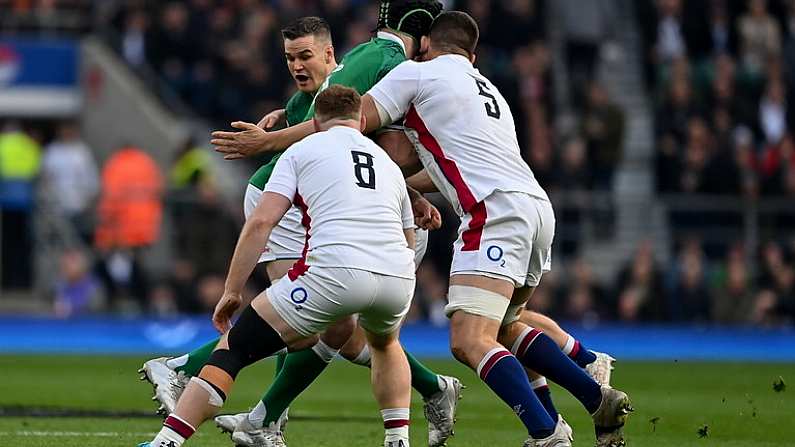The red card that Charlie Ewels received for a high tackle on James Ryan last Saturday obviously had a dramatic effect on the outcome of Ireland's Six Nations game against England.
Despite the opprobrium in the ground, it's hard to find a pundit who disagrees with the ruling. James Ryan, who has a history of head injury, faces a prolonged spell on the sideline. Ewels will miss three weeks due to suspension.
Interestingly, The Times have reported today that the RFU would welcome the introduction of a law that allows a team to bring on a substitute 20 minutes after receiving a red card.
The law is currently being trialled in Super Rugby Pacific, and was used in last year’s Rugby Championship.
The news comes after last weekend’s Six Nations clash between England and Ireland which saw English second-row Charlie Ewels red carded after 82 seconds.
People argued that the punishment was overly harsh for a tackle that did not seem to have any malicious intent behind it.
The aim of the new rule is to find middle ground between a yellow and red card, and prevent the ‘spectacle’ of a game from being weakened by a sending off.
However, there is also a serious argument that this will hurt rugby’s mission of cutting out high tackles, as players would not be as concerned about the consequences.
With concussion and brain injuries a big talking point in the rugby world, any law which might be seen to put players at a greater risk will undoubtedly come in for criticism, and optically would not look good.
The Rugby Championship coaches have come out in sport of the rule change with Australia’s Dave Rennie particularly vocal on the subject.
“It had enormous support in the southern hemisphere but not the northern. Not sure. To be honest, I don’t understand it,” he said. “As we know, there is a lot of emphasis now around head contact and so on. There are going to be a lot of cards.
“Individuals who get it wrong are going to get punished and spend a long time on the sideline anyway. If we can get back to 15 on 15, ideally, that’s what we want.”
Probably the most influential new rule that was originally trialled in super rugby was the 50:22. That law has gained widespread popularity despite a lot of skepticism when it was first announced.













